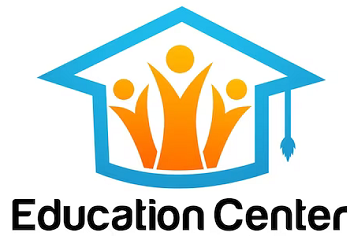Since the costs of tutoring are essentially variable, since they are correlated to the number of learners, would the promise of mass access to training lead to neglecting or abandoning any ambition to support learners with digital learning? Doesn’t tutoring deserve to be financed, not with budget tails, as is too often the case, but based on the results of rigorous tutoring engineering? Don’t the drop-outs that tutoring makes it possible to greatly reduce have a cost?
There is no vernier caliper that would allow the cost of tutoring to be calculated, just as there is no spontaneous costing of digital learning regardless of its volume and level of media coverage. To quantify requires to calculate and to do this, it is necessary to be based on data.
This data can be called up or produced by the various actions of tutorial engineering the main ones of which are the analysis of the contextual constraints weighing on the support of learners, the collection and prioritization of learners’ support needs, the identification of different tutor profiles, the design of a tutoring scenario specifying the number, positioning and quantification of proactive tutoring interventions, the determination of a package allocated to reactive tutoring interventions, the means committed to training tutors, their professionalization and the improvement of their productivity.
First seen as an additional cost item, tutoring is often neglected because its economic model (essentially variable costs) is the opposite reflection of that of digital learning (essentially fixed costs). If the goal of the latter is to reduce the costs of training, why add to it with tutoring? This is the quick conclusion that many organizations and their technical solution providers reach for ignoring tutoring. Of course, tutoring services have a cost, but to the extent that they enable more learners to achieve their learning objectives, they save the cost of dropouts. A digital learning having a cost of 20,000 € and targeting one hundred learners, it is not less than 200 € invested at a loss for each abandonment. Other indirect costs are related to the lack of developed skills that will not allow people who have given up, to be more efficient at their job. The disaffection of some employees for any new registration for digital learning, since their previous experience has resulted in failure, also has a cost that is not only ringing and stumbling.
Because tutoring reduces dropouts and facilitates success, it releases value, and it cannot therefore be considered as an expense to be avoided but rather as a source of profit, first for the learners, but also for the student. organization where they work and for the organization providing the training. Just as the costs of a digital are foreseen, those of tutoring must be calculated and should not be the adjustment variable of the economic model of digital learning.
Two researchers in the sciences of education examine the representations of tutoring among people who provide support in French to college students.
In order to better understand how tutors at French language support centers (CAF) in the college network see their role, the two researchers distributed a questionnaire to 116 of them in 12 college-level institutions. The research team then carried out semi-structured interviews with six tutors.
Six dimensions of the practice of tutoring in CAFs (Thomas, 2021) have been selected to guide the analysis of the data:
The quantitative and qualitative analysis of the data mainly reveals that the tutors see themselves as learners who mainly offer academic and motivational support.
Tutoring as a means of learning
For several participating tutors, tutoring represents a means of learning, even for the most experienced. This learning posture influences their way of relating to tutored persons, in particular by establishing a non-hierarchical relationship, by expressing their doubts and by asking for feedback in order to be able to improve
Although this posture may satisfy some tutored people, a study by Cabot (2021) shows that others prefer to receive help from someone in a position of authority who is older and more competent. Cabot (2021) also suggests that the person tutored in a CAF can choose the status of his tutor (pair, university or teacher) according to his needs.
Furthermore, more than 40% of the tutors surveyed say they do not address learning strategies very much, either to comply with CAF expectations (some content is prohibited) or to meet implicit expectations
According to the researchers, since the adoption of effective learning strategies can lead to greater autonomy, the tutoring offered by CAFs should focus on the development of strategies for accomplishing reading and writing tasks.
strategies to facilitate the writing of texts similar to those required in their courses: how to understand and analyze literary texts, generate ideas, organize a plan, choose the right vocabulary, revise the text, etc.
more general strategies related to the student profession: how to manage your time well, make sure you meet the requirements of a job, plan your study, etc.
Moreover, betting on the development of learning strategies requires rethinking the objectives of tutoring in CAFs and the expectations expressed towards tutors.
One of the courses of action proposed by the two researchers concerns the level of intervention of tutors in the CAFs. The latter could help the tutees to identify the factors that affect their motivation and to discuss motivational strategies with them
Several tutors interviewed as part of this research are already relying on interventions that support motivation. However, some of them are reluctant to approach more affective strategies because they do not know what is expected of them or how to go about it
In this regard, the researchers argue that it would undoubtedly be beneficial — for both the tutors and the tutees — if the CAF training on tutoring were more explicit about emotional support (ibid., p.15 ) . .

